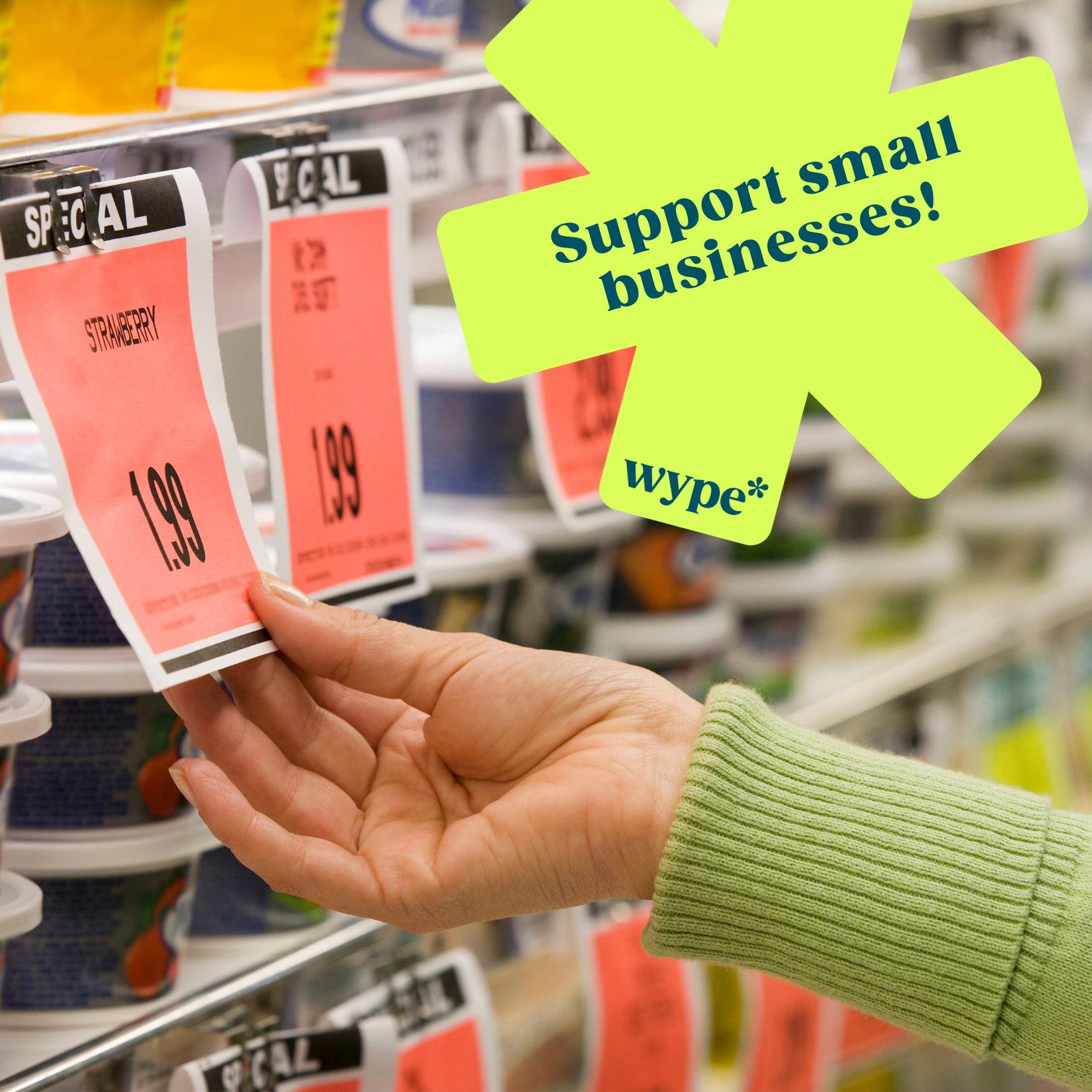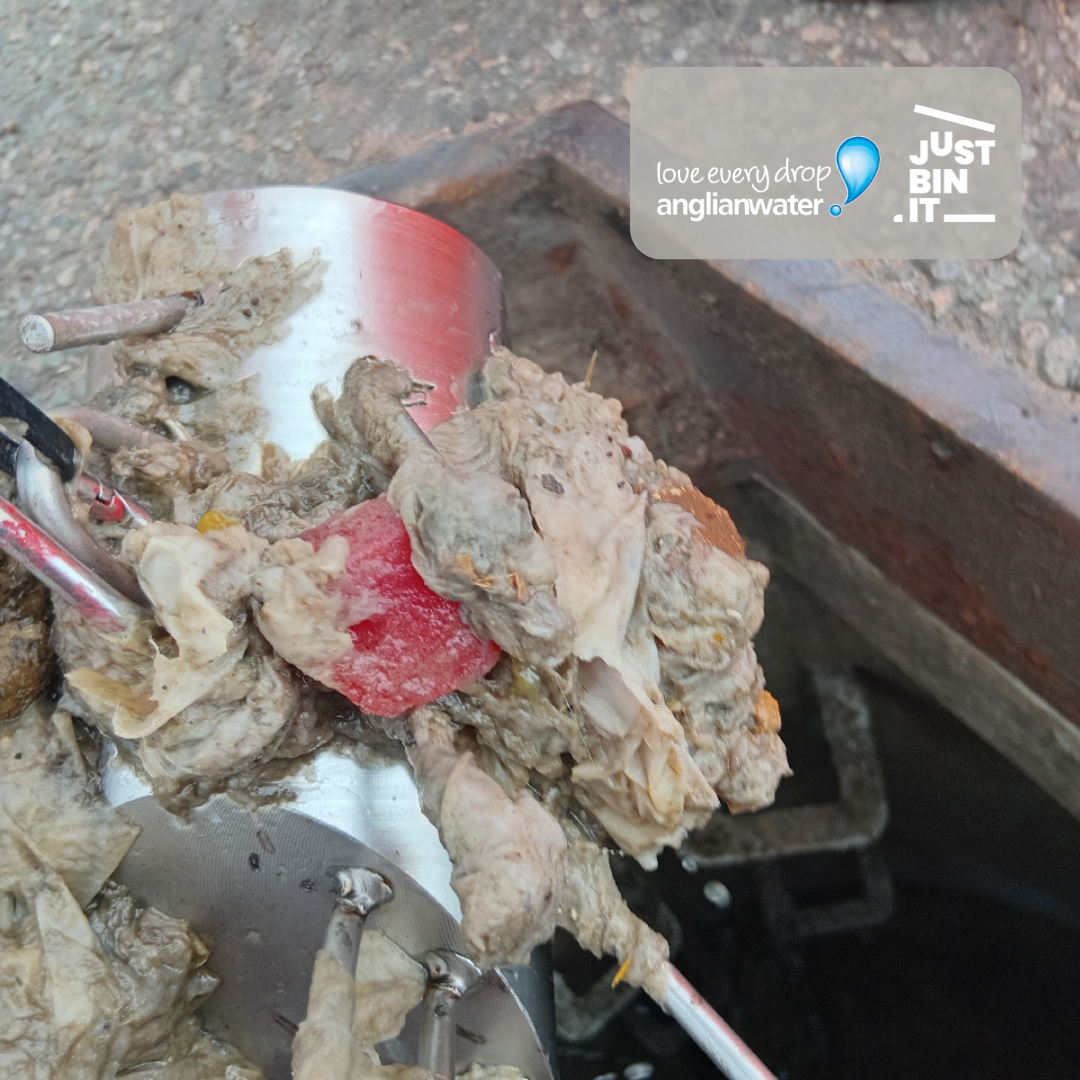Why sustainable products are more expensive

Why sustainable products are more expensive
Times are tough. The word ‘cost of living crisis’ had become jargon before we were even able to feel it hit us, but now it’s hard to ignore that prices have been rising, and the pressure is starting to hurt our pockets. It feels unfair, and sometimes we have to cut off activities, or little treats to ourselves, or worse, it might be harder to make ends meet.
This is not a blog about the cost of living crisis, there are plenty out there, and we’re definitely not the experts (other than having found ourselves exclaiming HOW MUCH? Looking at a piece of cheese at the supermarket). In the words of one of our Wypers, you go to put your head in the oven, and find that your gas has been turned off.

This blog is about what we know. It is about us, and small companies like us. With what many expect to be a dark cold winter, small companies like ours brace for the worst, while of course feeling compassion for the pressure that is being felt by the wallets of the country (and beyond).
Ok, enough with the doom and gloom, that’s not the Wype way! We’re here to share a little bit about what goes on behind the price tag of a small sustainable business, and what you’re really paying for.
In this day and age, many of us are trying to do our bit and think about how what we buy is affecting the planet - in fact, 66% of global consumers said they would pay more for sustainable products. However, big brands are cheap, readily available at the shop round the corner, and when it comes to it, is what’s in the box really that different? When life gives you lemons, you might just want the 50p lemonade from the off-licence and not the £2 locally sourced lemonade in a glass bottle with a 3–5-day delivery.

There’s lots to consider when we pick a product off the shelf, but one of the main things that catches peoples’ eye is the price point. If there’s one thing about us, it’s that we’re going to be honest with you. And yeah, shopping at small sustainable businesses can mean fishing for a few more pennies in your pockets.
Why do sustainable products cost more?
There’s good reasons for sustainable products costing a bit more than conventional alternatives, and it’s good to know them for the next time you find yourself umming and ahhing about which one to pick.
Less is more?
Sometimes it’s good to ask ourselves whether we’re living in a sustainability bubble. If everyone around us is talking about eco-friendly shopping, it can feel like everyone everywhere is living their best COP27 life. But that’s not exactly true.

Although many of us are now investing in sustainable alternatives to conventional products, the large majority of the market share still belongs to the big boys. And that makes sense: massive distribution, huge marketing budgets, smaller price tags, on the face of it, what’s not to like? But what we love about small sustainable brands is that they make a genuine effort to do better for the planet and oftentimes are better quality and hold more longevity.
But when it comes to it, convenience is still king. Shopping with Good Intent have noted that while sustainable living is on the rise, demand has not yet reached a point where sustainable products are considered as profitable as their counterparts.
People also stick to what they know works for them. A ‘don’t fix it if it ain’t broken’ mentality can lead to fewer people opting for sustainable alternatives, which ultimately keeps the cost of these products up.
Raw Materials
Sustainable materials are often better quality and always better for the environment - but they also come at a cost. For example, an aluminium bottle costs a brand like ours around 5 x more than a plastic bottle, but is a no-brainer due to its sustainability credentials. Opting for sustainably sourced ingredients like Palm-Oil free Glycerin also cost significantly more than Glycerin made with palm oil (which is unofrtunately most Glycerin).
Small businesses buy their materials in smaller batches, which means they cost more per unit to purchase and ship. This helps small businesses protect their cash flow (imagine buying 100,000 of something when you sell 1000 a month!) and reduce their risk. The scale of the large international conglomerates means that they are able to source all their ingredients and components at a cheaper rate than small businesses like ours.

In the personal care industry, small businesses that focus on being environmentally-friendly will typically use ingredients that are natural and organic (but unfortunately more expensive) to create a hypoallergenic & dermatologically approved formula. These will often be made with locally/sustainably sourced ingredients that are gentle to ensure their formula is kind to sensitive skin, and holds a greater benefit for the user whilst still reducing wastage for the customer.
Certifications
Small businesses making sustainable products need to stand out from the crowd! And often to do so, they opt to apply for third-party certifications such as COSMOS Organic, Fair Trade, Vegan Society, B Corporation, Leaping Bunny etc, to gain a helpful edge and showcase their credibility. That does not come cheap, the applications are time consuming, the rules are rigorous, and the certifications cost money to obtain (and maintain!).
Higher local wages
Small sustainable companies often use local suppliers and manufacturers to create their products. While this is great for local employment and the local economy, and ensures ethical labour practices, this is significantly more expensive than when labour is offshored. For example, it’s been noted that in developing countries, textile workers receive only .6% the cost of a standard t-shirt.
Large manufacturers produce at enormous scale using primarily offshored labour to save costs. They also tend to own their own factories, further reducing the cost of their products by cutting out a middleman from their supply chain.

Reusable/Refillable products cost more than disposables.
Large corporations have been working hard for years to create cheap, convenient single-use products - but we’re now seeing that once they’re used, they stick around and can pollute the Earth for hundreds of years. This is your everyday plastic cutlery, water bottles, wet wipes, take-away containers, and more.

About 50% of the plastic we produce is for single-use purposes. More than 8 million tons of plastic are dumped in the ocean each year, and over 90% of sea birds have plastic in their stomachs.
Sustainable companies are now trying to create products that hold longevity and can be used repeatedly to reduce the amount of single-use plastic that is being disposed of and ending up in landfill. This means using longer-lasting materials, or technologically advanced manufacturing processes which are, you guessed it, more expensive.
Small sustainable companies deliver value directly back to the customer.
When you shop from a conglomerate, reaching a real person who can directly help you with a query and deliver the company’s ethical values through customer care can be hard. This is quite the opposite with a small company. Small companies live and breathe customer and community satisfaction.

Things get lost in the mail, accidents happen, mistakes are made. That’s part of running a small business! It’s what happens after that, that makes all the difference.
At Wype, the first thing we care about as a small sustainable business is transferring as much value as possible directly to our customers. We do this in a variety of ways to make Wype more than a product, but a community of (sometimes very patient) individuals who made a conscious choice, and voted with their wallet - and this is never lost on us!
We see every email, text and comment we receive. We take from our community’s feedback to make decisions and mould the direction in which the company grows (tired of the surveys yet? Sign up to our mailing list to have an active role in the future of Wype).
We also do this by offering free shipping, sending free replacements and offering compensation when things (sometimes inevitably) don’t go to plan and offering a level of customer experience that transcends just getting the product to your doorstep.

Ok so now that we told you why Wype (and other products like ours) might seem expensive, one more trick to show you why Wype is cheap!
Our product has been designed to replace wet wipes, and if you read all the above, it won’t be hard for you to see that a wet wipe is more than a faintly scented little rag of convenience... it is a nemesis born in the bowels of consumerism (yeah that’s a bit dramatic but it’s our blog isn’t it!).

If you don’t feel like doing the math, a Wype starter kit currently starts at £9 (when you subscribe). Once you have our starter kit, our refills come at £6 each. However, each 100ml refill easily lasts longer than 6 packs of wet wipes, which contain 40 wipes on average (and we all know a few are going to break, dry up, come up in a clump of 10, and all that).
So really, a Wype bottle contains the equivalent of over 6 packs of wipes! That’s less than £1 per pack - instead of buying 6 packs of wipes little by little, you get one bottle to last you months. And you can rest easy at night knowing you've made a sustainable choice that is better for the planet by supporting a small local business!

The bottom line.
We aren’t blind to the fact that sustainable buying isn’t as cheap as it should be, and this stems from sustainable ingredients, manufacturing and employment being more expensive to start with.
Nobody should be telling you how and where to spend your hard-earned cash, especially in times like these, we mean that! What we can do, is shed some light on what goes on behind the price tag, so you can make an informed decision... and offer you a secret 30% off since you made it to the end of our blog! Simply use BOOKWORM30 at checkout to save 30% storewide and beat the Black Friday rush... and as a thank you for reading :)
And don't forget, if you’re looking for a cheeky Christmas gift, check out our Christmas Bundle, all the contents are locally sourced from kick-ass small UK businesses!


